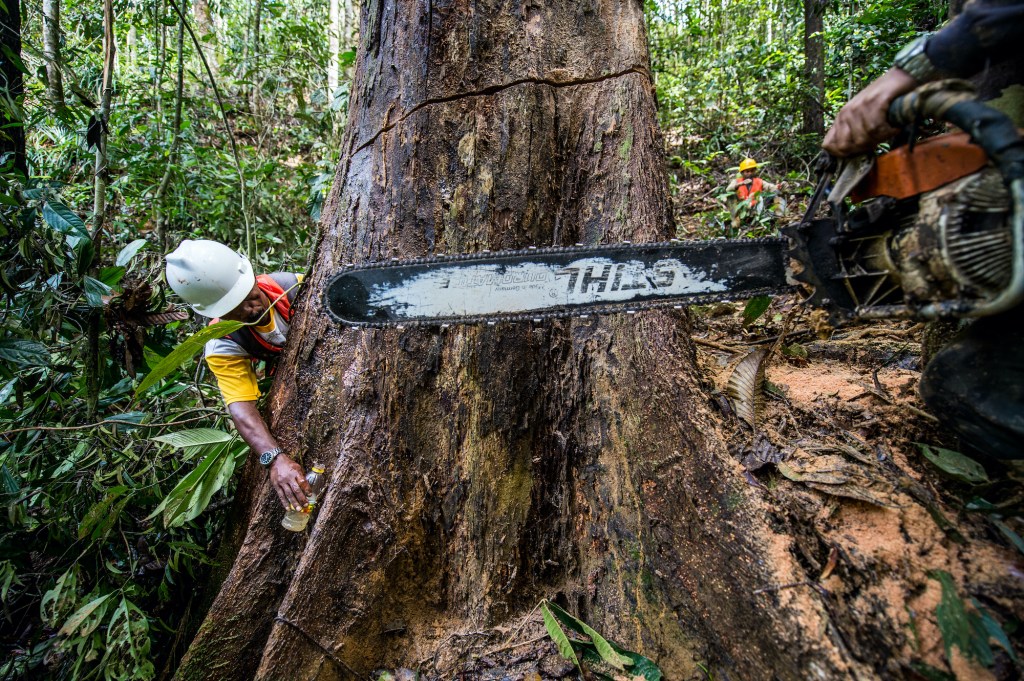New research from Indonesia finds that rural workers in deforested landscapes were less productive than those working in intact forest settings. Deforested locations experienced hotter temperatures, prompting workers to adapt their behavior and lowering overall productivity.
The Gist
Scientists randomly assigned workers from rural villages to 90 minutes of routine tasks in both forested and deforested settings in East Kalimantan, Indonesia. Workers were compensated with either standard or piece-ray payments tied to their output. The researchers collect data on worker output, rest-taking behavior, and core body temperature for every minute of the experiment. They also recorded movement data for every second to track physical effort.
Their results, published in Nature Communications, show that heat exposure due to deforestation decreases worker productivity by 8.22 percent, with workers adapting to increased temperatures by taking more breaks. Financial incentives did not encourage higher productivity in either forested or deforested environments.
The Big Picture
The tropics are the epicenter of global forest loss, which is accelerating rapidly despite calls to safeguard biodiversity and reduce carbon emissions. Forests are lost, so too are the cooling services they provide. Previous research found that deforestation can lead to local temperature increases that exceed a century of warming under high emissions scenarios. In this experiment, forested settings were on average 2.84 degrees Celsius cooler than deforested locations.
Forest cooling services are especially critical in tropical countries, where many workers perform physical labor in outdoor environments, with few ways to escape the heat. “We knew from our earlier research that warming increases the probability of heat strain and decreases cognitive performance,” says Yuta Masuda, a sustainable development and behavioral scientist at The Nature Conservancy and author on the research. “Now we know that heat can also adversely impact labor productivity.”
The Takeaway
Deforestation has serious implications for worker health and productivity. In this experiment, the effects of working in deforested settings were visible after just 90 minutes — far shorter than a typical workday — in favorable conditions where workers had access to shade, water, food, and encouragement to rest. “During an actual 6.5 hour workday, we expect the heat effects on labor productivity are likely larger,” says Masuda.
“As temperatures increase, villagers have to make a difficult choice: suffer the potentially serious health consequences of heat stress, or slow or halt the pace of work,” says Nick Wolff, a climate change scientist at TNC. Many rural workers in Indonesia, and elsewhere in the tropics are paid based on their productivity. “So for someone living in poverty, an 8 percent loss in their income could be devastating,” he says.
Tropical countries, like Indonesia, can help make rural communities more resilient to climate change by protecting existing forests, and their cooling services, or planting additional trees in working landscapes to buffer rural workers from increasing temperatures. Both policies also have the added benefit of reducing carbon emissions and protecting biodiversity.




Join the Discussion